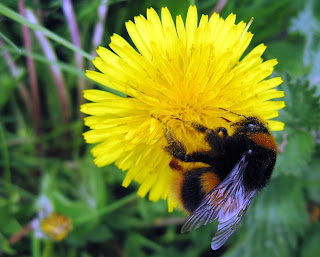Worrying news that global insect numbers are reportedly down some 25% on figures recorded in 1990 (https://www.theguardian.com/environment/2020/apr/23/insect-numbers-down-25-since-1990-global-study-finds). This is certainly the case in Europe where insects are important as pollinators, recyclers and elements in food chains. It does appear that humans (especially in agriculture) are the primary cause of this decline.
This blog may help people explore some of the 'hidden' issues involved in certain media treatments of environmental and scientific issues. Using personal digital images, it's also intended to emphasise seasonal (and other) changes in natural history of the Swansea (South Wales) area. The material should help participants in field-based modules and people generally interested in the natural world. The views are wholly those of the author.
Thursday, 23 April 2020
Subscribe to:
Post Comments (Atom)
-
I n the UK and US, a pparently popular and successful vegan/vegetarian restaurants are reportedly closing or adding meat to their menus ( ...
-
Early ripening fruit may seem convenient but some folk think it confirms environmental stress. There's also a possibility th...


%20mating%20NWCW.jpg)


No comments:
Post a Comment